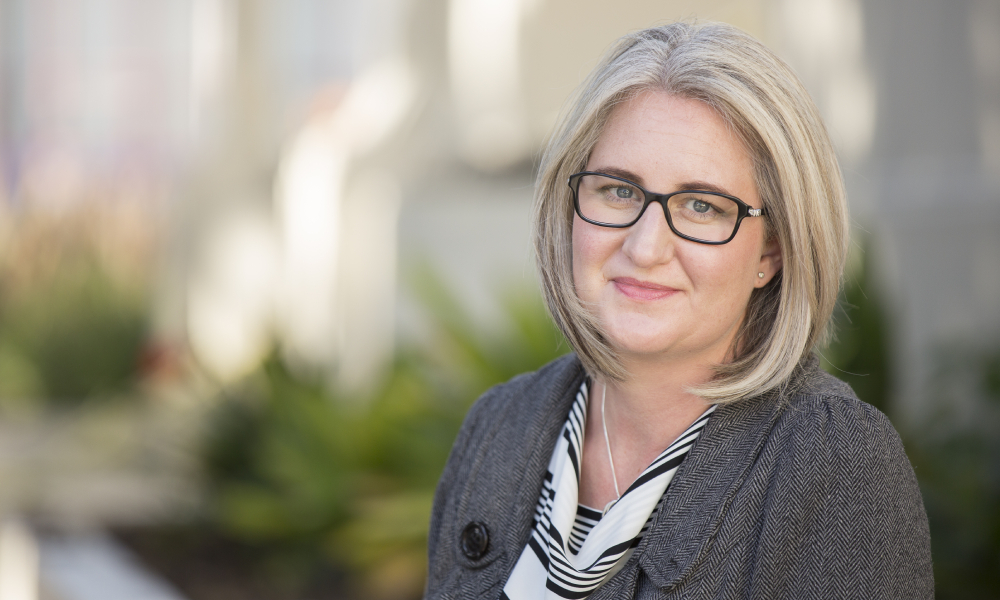
Myriam Mitchell talks about helping a client through an incident involving a workplace fatality

Myriam Mitchell’s most memorable case involved more than just providing legal advice.
While guiding a client through an incident involving a death in the workplace, she also offered her empathy and her support to those who were shaken by the event. Thus, this health and safety law specialist considers compassion to be something that should be a focal point for the profession, as it helps lawyers to better understand their clients, establish stronger relationships and build trust.
In this interview, Mitchell also talks becoming one of Copeland Ashcroft’s newest partners, work/family balance being among her greatest achievements, her passion for workplace law and how the industry needs to factor mental health into the shaping of the workforce.
What made you choose a career in law, and what's your favourite part of the job?
In my first year of studying management and employment relations, I came across an introductory law paper. I immediately fell in love with the topic and enrolled in a law degree. I realised it was the perfect balance between a stimulating intellectual environment and working with people and the problems they face.
Having worked in civil litigation and insurance law for 10 years alongside employment and health and safety, it has been a pleasure to focus solely on my real passion – workplace law – in my current role. My favourite part of the job is working through issues, gaining an early understanding of the desired outcome and strategizing to achieve the best possible result.
What is the most memorable case you've taken on/been involved in?
A local workplace fatality where I arrived onsite soon after the incident stands out, as the client and their staff were understandably deeply affected and I was able to provide support from the outset, assist with the immediate actions to take post-incident right through to WorkSafe’s decision to not take further action following its investigation. Being with the client at every stage meant I was right there to empathise and provide support and advice as to the best strategy to achieve the best possible result in the situation.
The client was extremely grateful and has stayed in touch. It has been amazing to see how the workplace has improved and grown following the incident.
What is going on at the firm? Are there any new programs and initiatives that you’re particularly interested in?
Being part of the growth and successes we have had to date across our three specialised areas of employment, health and safety and immigration law has been exciting, and I have loved being involved in securing the awesome team we have to support this. Consolidating this, including through the mentoring role I will take a stronger lead in as partner, is my focus for 2021.
What has been your proudest accomplishment in the last year or so?
There are so many lessons to come out of the “unprecedented” year we had in 2020 professionally, including reinventing the way I engage regularly with our clients and team around the country, and I think the best “take away,” with the benefit of hindsight, is not to be afraid to adapt, because change, controllable or otherwise, is a constant! Amidst that I have personally managed to complete and achieve the path to partnership, sell and buy a house, and balance work and family, which feels like one of my biggest achievements.
What should the profession and law firms focus more on?
Compassion to others in the profession, to clients and to the points of view of all parties. I believe compassion not only allows you to understand clients on a deeper and more meaningful level, but it also builds trust and confidence, relationships and helps with establishing a strong story for your client.
What challenges are particularly pressing in the country’s legal industry?
I believe mental health is one of the main challenges the legal industry and its clients will face this year. Studies have shown that many lawyers have felt burnt out at work and that their mental health has suffered as a result of burnout. Compounding this is the uncertainty that COVID-19 brings and the many challenges it poses. As a health and safety law specialist, I see the huge risks that we face if we don’t address these issues. The legal industry needs to take mental health into consideration in shaping its workforces and take better care of its people, and I’m pleased to be in a position to support this in a positive way.
What are you looking forward to the most in the coming year?
Seeing how the opportunities that the very difficult 2020 created for businesses and workplaces, including in terms of flexibility and more modern work practices, continue to develop.